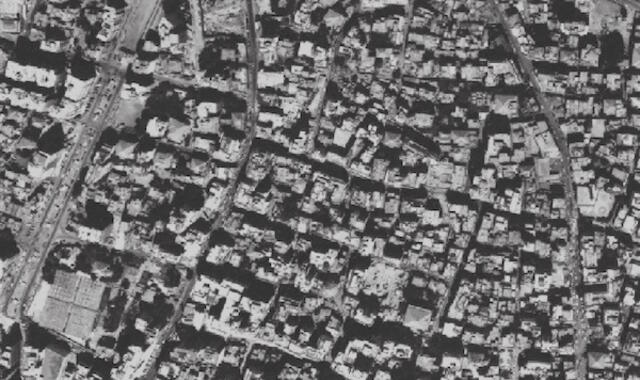
The neighbourhood of Mousseitbeh has been through several waves of eviction and demolition in the recent past. The first of these was in 1972, when the state decided to lay Salim Salam Road and other road networks, and compensation was paid to evicted families in the area where the road was due to run. In 1982 the road was widened and a tunnel was dug, which had a further negative impact on the neighbourhood:
many houses were demolished and Mazra’a was cut off from Mousseitbeh. Residents attempted, with little success, to establish crossings over the road to reconnect the two sides.
When the civil war came to an end, many of the old-rent-paying tenants were asked to leave their homes in exchange for compensation. At that time, these payments were a considerable sum, sufficient to buy an apartment outside Beirut without need for a bank loan. It is said that Muslim residents went to Aramoun and Chhim in the Iklim area, while the Christians moved to Ain El Remmaneh, Mansourieh, and Ain Saadeh.
Today, some of Mousseitbeh’s old quarters are threatened with evictions and total demolition, such as the Ablaa, Sofoh, Basha, and Furn alleys. These alleys are very old residential clusters, which for different reasons have managed to escape demolition, but their old-rent-paying tenants are being subjected to many pressures and face the threat of eviction.
Download pamphlet:

